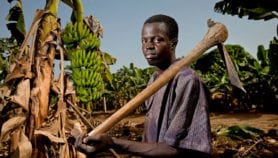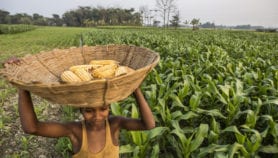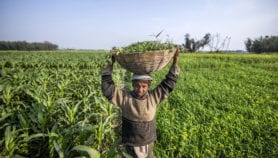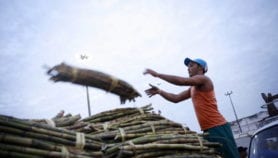By: Maina Waruru
Send to a friend
The details you provide on this page will not be used to send unsolicited email, and will not be sold to a 3rd party. See privacy policy.
[NAIROBI] Scientists have reported in Nature that the agroforestry approach of planting nutrient-fixing trees with food crops could help replenish Africa’s poor quality soils, tackling one of the biggest threats to food security on the continent.
Planting certain perennial trees together with food crops can more than double yields for maize and millet, which are among Sub-Saharan Africa’s staple foods, scientists say.
According to the comment article, ‘Agriculture: plant perennials to save Africa’s soils’, deep-rooted trees that live for two years or longer in crop fields would be a better and more sustainable option than expensive chemical fertilisers and often inadequate organic manures.
Trees such as Acacia albida, pigeon pea and Gliricidia could significantly fortify soils with nitrogen and potassium, elements critical to soil health.
The authors say it would cost millions of dollars to plant the trees in most crop fields across Africa, but the raised yields and reduced costs of buying synthetic fertilisers could add up to billions of dollars in a few years.
"The benefits of using perennial trees are real and have been documented in many countries in eastern and southern Africa," said John Reganold, one of the study’s authors and professor of soil science at Washington State University, United States. Some 8,000 farmers are using "perenniation" or "evergreen" farming on about five million hectares of crops, raising hopes for soil fertility and increased food yields, the article notes.
Nitrogen and potassium fixing trees, Reganold added, have other benefits to smallholders, including acting as sources of fodder and firewood and, at times, food as well.
The scientists say that trees that are two or more years old have the advantage of growing deep roots that sequestrate carbon deep into soil, significantly raising fertility.
"In some instances, for example in South Africa, we saw maize yields tripling, boosting food security for previously food insecure farmers," said Reganold.
Peter Kathuli, a soil scientist at the Kenya Agriculture Research Institute (KARI), said poor farming techniques have contributed to massive soil erosion, a trend that is continuing in many countries.
"African soils have low [levels of] nutrients and the capacity to retain moisture necessary to support plants has been badly compromised," said Kathuli.
While agreeing that agroforestry is counted among remedies to poor soil quality, he said farmers need expert guidance to plant trees which are suited to their soils and which are not a threat to underground water.
"Trees such as Calliandra are excellent at nitrogen fixing and are suitable sources of fodder for livestock in Africa’s mixed farming systems," Kathuli told SciDev.Net.













